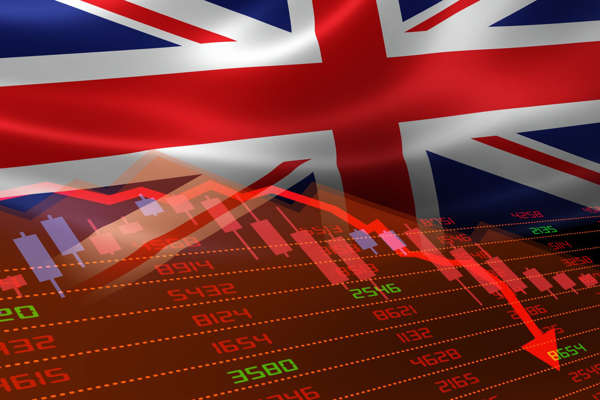The 10.1% figure is marginally down from the 10.5% previously recorded and means inflation has fallen further back from a 41-year high of 11.1% recorded in October.
UK inflation has fallen for the third month in a row - but the cost of living still remains at one of the highest levels in 40 years. Consumer Price Index (CPI) inflation nudged down to 10.1% in the 12 months to January - a bigger drop than economists had predicted. This is marginally down from 10.5% and means inflation has fallen further back from a 41-year high of 11.1% in October.
Crucially, this doesn't mean prices have stopped rising - they are still going up, just not as quickly. The Office for National Statistics (ONS) said the further decline was largely due to slowing prices of fuel and restaurants and hotels. But this was offset by rising prices for alcohol and tobacco, while food inflation stood at 16.7% - only marginally down from 16.8% the previous month.
The cost of household goods and services edged up to 26.7%, from 26.6% the previous month, due to the high cost of energy. Inflation shows how the prices of goods and services have changed over 12 months with food prices continuing to increase faster than the regular rate of inflation.
When inflation is higher, you're paying more for something compared to one year ago. For example, if something cost £1 last year and the rate of inflation is 2%, it would now cost £1.02 today. Responding to the figures, Chancellor Jeremy Hunt said, "any decline in inflation is welcome but the fight is far from over. High inflation strangles growth and causes pain for families and businesses - that's why we must stick to the plan halve inflation this year, reduce debt and grow the economy."
Labour's shadow chancellor Rachel Reeves said, "with inflation still close to a 40 year high, people will be asking if 13 years of Tory government has left them and their family feeling better off? The answer will be no. Despite Britain's enormous potential, in April households will be hit by another economic blow when energy prices go up. Labour would be bringing in a proper windfall tax on oil and gas giants now to stop energy bills going up in April. Our long-term plan to sprint to clean power and insulate 19 million homes will keep bills low for the fut."
Will inflation keep falling?
Some economists have said the latest inflation figure shows the UK cost of living crisis may finally be starting to ease. But of course, inflation remains in double digits - so prices are still rising rapidly, just not as quick as before. Inflation also remains five times above the 2% target set by the Bank of England.
The Bank of England currently predicts CPI inflation will fall to around 4% towards the end of this year. Last month, the governor of the Bank of England Andrew Bailey said there could be a “rapid” fall in inflation following a drop in global energy prices over recent weeks Wholesale gas prices have fallen thanks to milder weather and high levels of gas storage. Prime Minister Rishi Sunak has vowed to halve inflation "by the end of the year" as one of his five visions for Britain.
More interest rate rises to come, warn experts
There are more Bank of England base rates to come, a group of property finance industry experts has warned.
Personal finance comparison site Finder compiled an expert panel consisting of 11 academics, economists, mortgage and savings experts, and asked them for their predictions and opinions on the future of the Bank of England’s base rate and the impact of this on the UK economy.
Five of the 11 experts predict that the base rate will sit at 4.25 per cent by the end of 2023, and two out of 11 believe it will end the year at 4.5%. Another two panellists believe the rate will stay at its current 4.0% and the last two panellists predict that there will be an even more significant increase to 5.0 and 5.5% by the end of 2023.
None of the panellists believe the rate will fall from its current level of 4.0% although two of the experts believe this will be the rate come the end of the year. When asked if the bank should be dovish - that is, lower rates to encourage growth and borrowing - six of the panellists said this would be their approach.
David Hollingsworth, associate director at L&C Mortgages, said: “Reaching the peak of rate rises sooner rather than later should help borrowers adjust to the new rate environment and how it impacts them.”
Luciano Rispoli, senior lecturer at the University of Surrey, said: “The large inflationary shock experienced in 2022 can only be counteracted by aggressive hawkish BoE monetary policy actions. Thus, I believe MPC actions can only go [in] one direction.”
And Stephen Sillars, savings editor at Chip, said: “The UK needs to get a handle on inflation so it’s not really in a position to stop raising interest rates, but the Bank of England can’t ignore the fact this may push the economy into more of a downturn than already predicted. It’s a delicate balance.”

